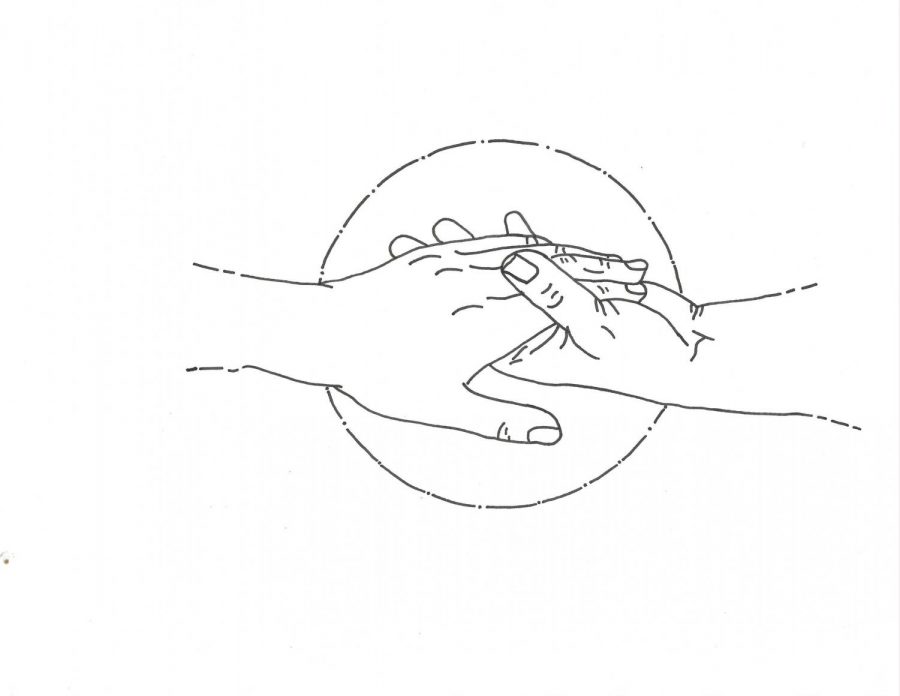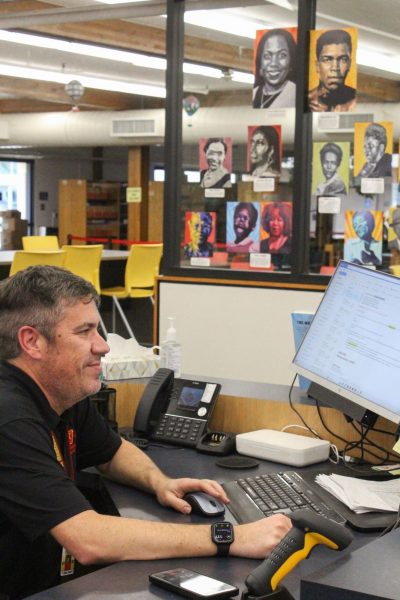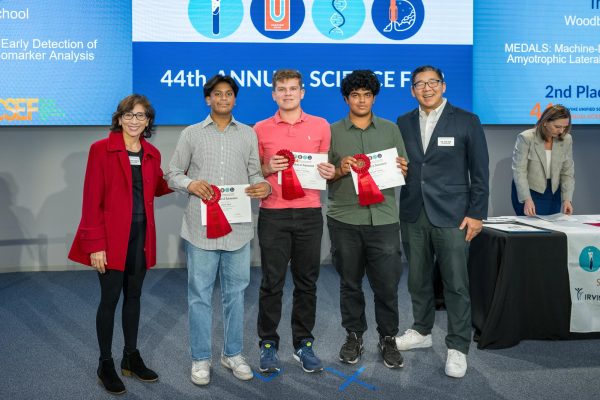Holocaust Art and Writing 2021: Remembering and Connecting
Freshman Noelle Zepeda won second place in the film category of Chapman University’s 2021 Holocaust Art and Writing Contest
Remaining united in times of hardship can make all the difference, just as Firestone’s relationship with her sister gave her the strength to survive the Holocaust.
In the 2021 Holocaust Art and Writing Contest, freshman Noelle Zepeda won second place in the film category. Each year, students watch Holocaust survivor testimonies on the University of Southern California (USC) Shoah Foundation website and The 1939 Society. Then, students create a heartfelt response to a specific survivor’s testimony through poetry, prose, film or art. This year’s theme, Sharing Strength: Sustaining Humanity, described the immense difficulty that victims of the Holocaust had with staying connected to others.
Zepeda created a film about the survivor, Renee Firestone. Firestone was born in Uzhorod, Czechoslovakia in 1924 to a Jewish, but non-religious family. In 1944, she was deported to Auschwitz, where her sister, Klara, died in a gas chamber. Since the Soviets were coming, she and other prisoners of Auschwitz went on a 60 kilometer death march and cattle car ride to another concentration camp. On May 8, 1945, the Soviets freed Firestone and other survivors. She moved to the United States in 1948 and later became a fashion designer. Throughout her life, Firestone’s memories of the Holocaust have never left her.
At Auschwitz, a notorious labor and death camp, Zepeda said that Firestone and her sister were supposed to meet each other every morning and that was how they agreed to stay alive.
“Knowing that she and her sister had that connection, that’s what kept her going on and made it through the Holocaust,” Zepeda said.
However, one day Firestone’s sister did not appear at their meeting place.
“It was really sad because… she kept on looking out for her sister and I knew how much she cared for her,” Zepeda said.
In her video, Zepeda showed powerful images of the Holocaust that display the suffering and misery in the concentration camps. She also included clips of Firestone telling her story in the video, even showing a part where Firestone became emotional.
“Noelle’s video touched my heart as soon as I watched it and brought a tear to my eyes. My greatest joy for Noelle came when her film was not only recognized by Chapman University, but also when Renee Firestone shared her own gratitude to Noelle during the Virtual Ceremony. She even said, ‘everyone should see this film’”, history teacher and Holocaust Art and Writing contest advisor Karen Briner said.
Based on statistics from The United States Millenial Holocaust Knowledge and Awareness survey (2020) that surveyed 11,000 people ages 18-39 across the nation, it is apparent why everyone should not only see Zepeda’s film, but learn about the Holocaust. 63% of respondents did not know that six million Jews died in the Holocaust, 36% thought that less than two million Jews were killed, 48% could not name one of the more than 40,000 ghettos or concentration camps created and that 11% of respondents thought that Jews caused the Holocaust. The survey also revealed that 49% of respondents have seen Holocaust denial or faulty posts online.
“There is no doubt that Holocaust denial is a form of antisemitism and when we fail to actively remember the facts of what happened, we risk a situation where prejudice and antisemitism will encroach on those facts,” Deborah Lipstadt, a professor of modern Jewish history and Holocaust studies at Emory University said in an NBC article.
COVID-19 can never be compared to the terrors of the Holocaust, but our experience in isolation, separated from our loved ones and disconnected with the world can give us a sense of how Holocaust victims felt. When asked how she would react to someone denying the Holocaust’s existence, Zepeda said she would show the person her video as evidence and tell them that despite how horrifying the Holocaust was, it did truly happen.
“At a time when it’s easy for fear and hate to take the place of compassion and kindness, it is up to us to spread the history of the Holocaust and advance human rights to combat prejudice, hatred, indifference. We have a mission to never let the world forget the horrors of the Holocaust,” Zepeda said in her video.
The survey also found that 59% of respondents believed something like the Holocaust could happen again.
“There are fewer survivors each year and it is important for us to speak. We have a responsibility to remind the world [about] what has happened. We have to start teaching our children. We can’t be afraid to tell them. Our children have to know what happened,” Firestone said in her testimony.
Another lesson Zepeda learned while doing her project is the importance of staying connected with each other so that we can combat the pain, fear, sadness and loss that so many people have felt throughout the pandemic. Zepeda said we should keep on going and unite together instead of focusing on everyone’s differences.
In a time when people deny the Holocaust and lack the education about it, Briner said that she spends time teaching the Holocaust each year so that her students can help prevent future genocides and ethnic cleansings from occurring.
“I believe it is important for us all to first and foremost see one another as human beings, to recognize and appreciate not only what we have in common, but also to understand what makes us different and unique. That common sense of humanity and appreciation of one another is at the heart of how I try to convey the lessons of the Holocaust,” Briner said.
Zepeda said that doing the contest allowed her to learn about the tragedy that is the Holocaust and she reccomends that everyone watch the testimonies online and do the next Holocaust Art and Writing Contest to understand the history of the Holocaust.
“For the survivor who chooses to testify, it is clear: his duty is to bear witness for the dead and for the living.[…]To forget would be not only dangerous but offensive; to forget the dead would be akin to killing them a second time,” Elie Wiesel, famous author and Holocaust survivor said.
Your donation will support the student journalists of Woodbridge High School. Your contribution will allow us to purchase equipment and cover our annual website hosting costs.
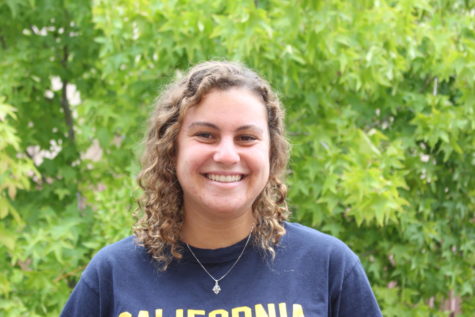
Hi Warriors! This is my third year as a part of Golden Arrow and I am so excited to be an Opinion Editor and writer this year. I can't wait to write meaningful...
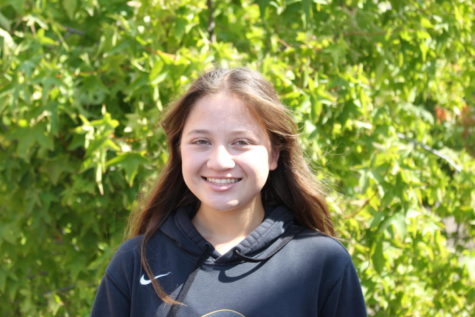
Hello, I'm Olivia Werner and I will be one of the two Business Managers for this year! This will be my first year working on the Golden Arrow, and I am...



